PETOŠEVIĆ PEOPLE: Q&A with Viktoriia Smyrnova
Before starting her career in IP, Associate Viktoriia Smyrnova from our Kyiv office worked for Save the Children International and the United Nations’ World Food Program. Viktoriia now handles trademark and industrial design prosecution in Ukraine and other former countries of the Russian-speaking region. We asked Viktoriia about her work, favorite pastimes and much more.
-
How did you start your career in the IP field?
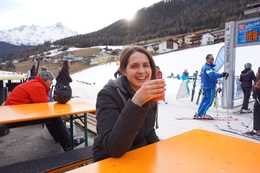
I studied International Relations at the Diplomatic Academy of Ukraine where we had a course called Economic Diplomacy, incorporating a section on intellectual property. It was a short crash course, but I took a particular liking to it and the interest in IP (it was hardly solid knowledge at the time) stayed with me. Then, I accidentally ran into an IP paralegal job announcement and applied for the position. This is how I got my foot in the IP door. My professional aspirations have always been in the realm of international relations. I never consciously planned to become an IP professional – IP found me!
-
What makes IP protection challenging in Ukraine and the Russian-speaking region? How do you overcome that challenge?
I would say establishing consistent and effective communication with official bodies can sometimes be challenging. It is often about keeping a vigilant eye on the problem and going the extra mile to get things properly done.
-
What do you most enjoy doing at work?
I enjoy a challenge and diversity at work. Generally, what makes IP attractive for me is that it encourages me to learn continuously about the world around me and motivates me to be a Jack of all trades (but not a master of none!).
-
What would you be working in, if you weren’t working in IP?
I have worked in the field of education (my first job was in teaching) and in the humanitarian field (the UN and Save the Children International). If my life had not taken me where it did, I would probably have been a teacher or a humanitarian worker. I was comfortable in both professions; both were valuable and life-changing experiences.
-
What was the first job you’ve ever had?
I was born into a family of teachers, was trained to become a teacher, worked as a teacher, but then took a leap of faith.
-
What is your favorite thing to do when you are not working?
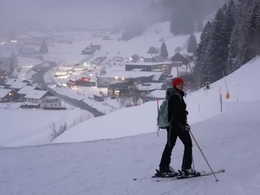
I love exploring the world around me and trying new things. Some hobbies come and go, some stay longer with me. What I really enjoy is tennis, swimming, outdoor gardening, growing flowers, skiing and travelling.
-
What book did you read last?
I often read several books at a time, some to accommodate my personal needs, some to enjoy the company of my closest people (we have a family reading tradition). Interestingly enough, our latest family read was “Forensics: The Anatomy of Crime” by Val McDermid. It is literally about forensics, a non-fiction book written by a crime writer. My personal read was “The Gray House” by Mariam Petrosyan.
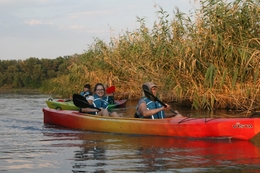
I am now enjoying “Think Like an Artist: and Lead a More Creative, Productive Life” and “What Are You Looking At?: 150 Years of Modern Art in a Nutshell” by Will Gompertz. Both explore art and creativity through an unconventional lens.
-
What is your favorite song/music at the moment?
“Union” by Her (Victor Solf) and “Hunger” by Florence and the Machine.
-
What is your favorite dish of all time?
I am not much of a gourmet and preach the idea that we should eat to live, not the other way around. Anything healthy and balanced is OK.
-
If you could meet anyone in the world, from the past or present, who would it be and why?
I believe the question is about famous people of the past or present… In all honesty, I never made an idol for myself. At least I cannot think of anyone I wanted to meet but could not for some reason. People I need or I want to meet are around.
-
What was your favorite subject in school and why?
Languages and literature. Exact sciences were not to my liking, which I regret. By the way, if I could meet myself back in my schooldays, I would pull out all the stops to excel in exact sciences.
-
What did you want to be when growing up?
My preferences changed quite regularly. While growing up I wanted to become a cosmonaut, a pilot, a doctor, a teacher and a lot more.
-
Tell us three things most people don’t know about you.
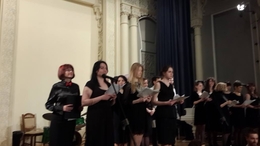
I played in a rock group, sang in a church choir and I am taking chemistry classes.
-
If you could learn to do anything, what would it be?
Sailing. I had a go at sailing last year, but it did not end up being anything meaningful because I had too much on my plate at the time. So, one of my 2020 resolutions is to resume sailing lessons and to pass a nautical license test.
-
What is your biggest frustration about the world around you?
I would say lack of empathy. In the pursuit of material well-being, we are becoming egocentric and egotistic. I hate seeing that we do not give a helping hand or second chances to each other.
-
What is the most important thing you have learned in the last five years?
There is no point in life – no matter if you are 15, 20, 30 or older – from which you can’t start something new and get where you want to. Or so I believe.
-
What do you wish you could have told yourself at age 13?
Study mathematics, chemistry and physics harder.
-
What cities/countries have you lived in?
I have lived in Ukraine (Zaporizhzhia, Kyiv, Dnipro) and Poland (Wroclaw, where I was working on my master’s thesis, and Katowice, where I volunteered for a social center taking care of kids from dysfunctional families).
-
If you could live in another country of the 30+ countries where PETOŠEVIĆ operates, which would you pick and why?
Croatia, Slovenia, Montenegro. Any coastal country would do.
-
If someone came to your city for 24 hours, where would you take them?
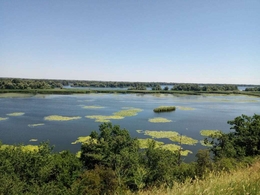
If someone visited me in Zaporizhzhia, I would take them to the Island of Khortytsia (where Cossacks had their fortress), on a kayak tour among the Dnieper reed beds and around the so-called Kakhovka sea (Kakhovka Reservoir).
Read more PETOŠEVIĆ People interviews.
